
The War of Words
In this Adventures in Odyssey drama, a carelessly uttered word from Eugene creates havoc as it becomes the fashionable insult, resulting in a lesson about the power of words.
Home » Episodes » Focus on the Family Broadcast » Finding Freedom from Addiction (Part 1 of 2)
Teaser:
Dr. Gregory Jantz: Uh, we can pray for wisdom, we wanna pray for discernment, but we’re not gonna control another person. But when I talk to a loved one, a family member, I’m gonna begin with the words, “I have something important, and I’d like to talk to you. And it’s because I love you so much.”
End of Teaser
John Fuller: Hmm. That’s Dr. Gregory Jantz, and he’s our guest today on Focus on the Family to help you understand addictions and healing through Christ. And your host is Focus president and author, Jim Daly. Thanks for joining us, I’m John Fuller.
Jim Daly: You know, when we think of addictions, uh, we probably, uh, think of those traditional problems, drugs, alcohol, gambling, but there are so many, uh, kinds of addictions that we see developing around us. I mean, the one in that category of drugs would be the opioid addiction, and something like two million people are addicted to opioids now. But digital devices, pornography, maybe work, workaholism-
John: Mm-hmm.
Jim: … uh, shopping, what we eat. Now, that’s starting-
John: Hmm.
Jim: … to get a little close to-
John: Yeah, just move on.
Jim: … the heart, um, but they can go unaddressed. And these and other addictions can devastate a person’s overall health, as well as their family and their relationships. Uh, Dr. Gregory Jantz has a lot of great insights to share about addiction, and he wants you to know that you can pick up the shattered pieces of your life and find healing and freedom. And that is, uh, what we’re gonna talk about today and next time.
John: And Dr. Jantz is a nationally renowned, uh, psychologist. He focuses on the whole-person approach to mental health and founded the center, A Place of HOPE to help people transform their lives. And he’s written a book called Healing the Scars of Addiction, and we have that here. Just stop by focusonthefamily.com/broadcast.
Jim: Dr. Jantz, welcome back to Focus on the Family. It’s good to have you again.
Dr. Jantz: It is so good to be here. And, wow, I was just thinking about our topic-
Jim: Uh-huh.
Dr. Jantz: … and we all know somebody who’s been touched by addiction.
Jim: Well, it’s so true. And we need to, you know, describe it, unpack it, all of those things. So let’s get started. Uh, as a therapist, what are your observations about the nature of addiction in our culture and how our addictions might be growing?
Dr. Jantz: Addictions are growing. We know, right now, during a unique period of time, about 40% of Americans say that they have struggled with some level of addiction, according to the CDC. So that’s a huge number-
John: Yeah, it is.
Dr. Jantz: … and when we talk about addiction, we probably better define it. Of course, in addiction, nobody ever starts out saying, “Hey, I wanna be an addict.”
Jim: (laughs). No.
Dr. Jantz: It doesn’t work that way. Uh, it’s like the person, “Well, yeah, I wanted to be an alcoholic.” No. Addiction i- is two things. It’s subtle and it’s sneaky, and then it gets a stronghold.
Jim: Define addiction. I mean what-
Dr. Jantz: Sure.
Jim: For those that maybe don’t think about addiction, they don’t feel they’re addicted, what is addiction?
Dr. Jantz: Addiction is something that you tell yourself, “I’m going to s- stop this,” or, “I better cut back.” Inside, you know there is a problem. And it’s a compulsive behavior that you’re driven to do, and here’s the key, despite consequences.
John: Hmm.
Dr. Jantz: So I can lose my marriage, I can lose my job, but I continue in my addiction. And so the addiction becomes all consuming, and a person… and I know it’s hard to understand, but a person may go towards that substance, anything that’s mood-altering and that’s all consuming, and they will put and lose… put everything on the line and lose everything.
Jim: So I wanna be really clear in case somebody is, is struggling defining their, their actions.
Dr. Jantz: Yes.
Jim: Uh, describe that person.
Dr. Jantz: Sure.
Jim: You, you kinda mentioned it, but I wanna get really precise in that definition. So maybe, you know, maybe I’m thinking, “Well, I’m not addicted.” I don’t, inside, feel that conviction that-
Dr. Jantz: Mm-hmm.
Jim: … you just described. Can I still be addicted to something-
Dr. Jantz: Yeah.
Jim: … even though I’m not knowing it?
Dr. Jantz: Well, Jim, you led us right down the road to the word denial (laughs).
Jim: (laughs).
Dr. Jantz: So, yeah, part of why I continue an addictive behavior is I’m denying that it’s really, uh, a problem. And so that’s when we say, “Hey, I can take care of this,” or, “Hey, it’s no big deal.” And, and we play that denial game. That’s usually a part of, uh, an addicts dance-
Jim: Mm-hmm.
Dr. Jantz: … if you will. So you start to live in a lie-
Jim: Huh.
Dr. Jantz: … uh, in order to continue that.
Jim: Yeah.
Dr. Jantz: Now, your loved ones around you, sometimes you bring them along and they’re a part of it. And we call them, uh, codependent or even co-addicts. It’s the mom who says to her 20-year-old son, “I love you so much. I know I shouldn’t give you this $20,” and she does it.
Jim: Mm-hmm.
Dr. Jantz: Okay, but, uh, you don’t know what to do.
Jim: Yeah.
John: Uh, you mentioned family members. So I, I talked to a family member who said, “Well, my dad, uh, was a hard drinker, but he wasn’t an alcoholic,” right?
Dr. Jantz: Right.
John: I mean, so that might’ve been a level of denial, but w- w- it’s still kinda gray to me. I mean, where does it… let’s say somebody hasn’t experienced the loss of family-
Dr. Jantz: Yes.
John: … or whatever, where does it actually become an addiction?
Dr. Jantz: Well, one of the things we, oftentimes, do, we go, “Oh.” When we talk about family members, we go, “Well, that’s just the way he is.” And we almost treat it as though it’s normal. We’ve normalized-
Jim: Hmm.
Dr. Jantz: … addiction, “Oh, yeah. That’s the way uncle John is.” (laughs) You know. Um, but the reality is it’s a problem, and addiction affects all family members.
Jim: Hmm.
Dr. Jantz: It really does because addiction becomes a way that we process our emotions. So it’s the person today, they come home from work and they’ve had a stressed-out day, and they go, “Okay, I just need a little food.” And they start the, let’s say, binge-eating. And then they continue that day after day. Um, they know that it’s a problem, but they’re probably not using the word addiction. So I’m processing all my frustrations through the food.
Jim: Hmm.
Dr. Jantz: Um-
Jim: But I’m so glad Haagen-Dazs chocolate chip-
Dr. Jantz: (laughs).
Jim: … is not included in that.
Dr. Jantz: No, there are-
Jim: (laughs).
Dr. Jantz: … only certain things we’re talking about here.
Jim: No, it’s true, though. I mean, it’s the comfort food, right?
Dr. Jantz: Yeah.
Jim: Uh, Dr. Jantz, you also mentioned, uh, other, uh, barriers to determining what’s harmful.
Dr. Jantz: Yeah.
Jim: I mean, denial is one, you list secrecy, minimizing, maximizing-
Dr. Jantz: Yeah.
Jim: … and shame. Just give us a definition of each of those.
Dr. Jantz: Sure. Let’s talk about shame. You know, when I’m struggling with an addiction, there is a lot of secrecy. There’s the sec- “I gotta keep it hidden.” It could be gambling, it could be some things you think that don’t affect other people. It… you know, it’s just my own private thing. Sometimes, people will put pornography in that, “No, it doesn’t affect anybody else.” And so… but there’s the shame of, “Okay, I know, and I’m trying to push down this guilt. I’m trying to push it down, but I feel a lot of shame about, ‘Okay, how do I really get help? What do I do?’ And I can’t tell anybody this, I’ve kept it a secret for so long.” Sometimes, we’re shocked when we s- hear of a person who suddenly comes out and they’ve, they’ve have an addiction. And you go, “I can’t believe it,” becau- but they’ve had it for a long time. And so that’s the secrecy. Um, I… part of my goal is, “Look, if this is the problem, let’s remove the shame.” The shame says that, “I feel like there’s something wrong with me.” It’s really not about that, it’s about, “How do we get back our lives and our health as God designed it to be?”
Jim: Let me, uh, drill into that a little bit, because I think in the Christian community, we see shame as a tool-
Dr. Jantz: Yes.
Jim: … of behavioral correction-
Dr. Jantz: (laughs). Okay.
Jim: … especially in our parenting, right?
Dr. Jantz: Sure.
Jim: It’s not healthy, though. Um, there’s a better way to do those things. But speak to those of us tha- you know, who wanna follow the rules, that believe in Jesus-
Dr. Jantz: Mm-hmm.
Jim: … uh, but, you know… especially, I think, in that context of parenting. We can create addictions, I think, or c-
Dr. Jantz: Hmm.
Jim: … participate in that by shaming our kids to try to get the behavior we’re looking for.
Dr. Jantz: Yes. Well, as a parent, we can get really frustrated. It’s that kid of yours that’s been on that device all day long and you can’t get them out of the bunker house (laughs). You know.
Jim: Exactly (laughs).
Dr. Jantz: Um, and you don’t know if they would eat if you didn’t deliver the food, (laughs) you know. So, and you’re enabling this to ha- continue. Um, so we sit… and we feel frustrated. So, out of frustration, we may say some things out of anger that we later regret. And frustration and anger could kinda drive that addiction more secret, um, the secrecy, so all, all addiction is a ticking time bomb. Somewhere, somewhere along, along the line, something will break.
Jim: Hmm.
Dr. Jantz: Our health, uh, we may l- have a significant loss, um-
Jim: Our marriages.
Dr. Jantz: … marriage, that would be a significant, uh, potential loss.
Jim: Yeah. Greg, let me ask you this. Um, God realizes this, he knows this-
Dr. Jantz: Yeah.
Jim: … he made us. He knows that we’re prone to these addictions and these failures.
Dr. Jantz: Mm-hmm.
Jim: Well, what do you think of His perspective? I know it’s a big question to say, what do you think God thinks about this, but, uh, what is he, uh, feeling and sensing, in your opinion-
Dr. Jantz: Hmm.
Jim: … as a psychologist, vocationally, but as a believer in Christ, combining those things? What, what is-
Dr. Jantz: Yeah.
Jim: … he seeing?
Dr. Jantz: Well, I think addiction tells us we’re not lovable. Addiction… that’s part of the shame. Addiction says, “You’re really not lovable. This is what you deserve. This is all you’re gonna do.” No. God says, “I love you, and you have great value.” But, see, addiction robs the value. Addiction changes how we see ourselves and how we feel about ourselves. So I know, and from all of our years of working with folks that have addictions, I know that they need to come back to the realization, how much they are deeply, deeply loved. Your addiction doesn’t change that. God still designed you, there’s still a purpose for your life, and we can, at any, any point, we can realign that purpose. And, and addiction may be the greatest thing and most humbling thing you’ve ever had to face, but it’s also the greatest thing that will turn your life around to face it.
Jim: It is interesting that when you do face these things, your intimacy, first with your creator-
Dr. Jantz: Yes.
Jim: … as a believer in Christ will grow, ’cause you’re, you’re unable to hide anymore. You know, that closet that you would keep these secrets in-
Dr. Jantz: Hmm.
John: Yes.
Jim: … is actually… He’s opened the door now and He knows what’s happening. He always did, obviously, but you now are confessing that to Him. Um, I, I think, Greg, in your book, Healing the Scars of Addiction, you, you made a point in it that really caught me because it’s the root of addiction. And you, you say that bitterness and unforgiveness, uh, can be that root of addiction. I think people that are listening now need to hear that clearly.
Dr. Jantz: Yes.
Jim: How does bitterness and unforgiveness play into, uh, feeding those addictions we may have?
Dr. Jantz: Absolutely. And this is probably the, the core thing we need to really address when we’re in recovery from an addiction. Where am I carrying unforgiveness? Is it with myself? Is it with… was I deeply wounded? Was there severe trauma in my life and addiction has been my way of dealing with that?
Jim: Hmm.
Dr. Jantz: See addiction causes us, whatever form, it could be, uh, even digitally, um, but addiction changes how we feel temporarily. It’s a mood elevator, and then it’s a mood crasher. But, um, so we know that, at times, “I need to find and deal with that hurt, that trauma.” There’s something that happens, and I see this so often in a person’s life, when it’s a s- release of forgiveness, self-forgiveness, a release of forgiveness of some past hurt, and receiving God’s forgiveness.
Jim: Right.
Dr. Jantz: Um, something happens and they start growing. And they’ll actually say things like, “Well, I don’t really feel like I need this alcohol, or I need… they feel like the need for it diminishes.”
John: Mm-hmm.
Jim: Right. That’s so good. Uh, Greg, what would you say to the Christian who might, um, tend to live in that shame? I mean, we mentioned it-
Dr. Jantz: Yes.
Jim: … but what should that response be when you feel the guilt and shame of these poor behavioral choices that, you know, grieves God’s heart?
Dr. Jantz: Okay. Well, that’s our cue to do something. When you feel the guilt and shame, that’s the time to say, “I’m gonna look at what my options are for getting help.” Now, addiction requires us to say these words, “I need help.” (laughs).
Jim: Right.
John: Mm-hmm.
Dr. Jantz: Because if you could have handled it, you really would have. Um-
Jim: Yeah, it would be rational.
Dr. Jantz: Yeah. And… but it… it’s subtle and it’s sneaky and it’s got that stronghold, and you know, there’s a spiritual side to addiction. Addiction, ultimately, puts us on the path to despair and potential path for death. Addictions kill.
John: Hmm.
Dr. Jantz: And that’s… so we wanna intervene. We don’t want you over there on the despair or the destruction. And so when you feel that guilt, that’s just the cue to go, “Okay, this is bigger than me. I need to ask for help.”
John: Hmm. I’m thinking of something that Dr. Arch Hart has… uh, I’ve referred to this before, Jim. Uh, he said, “When we bring that temptation out-
Dr. Jantz: Yes.
John: “… into the light, it robs that temptation off the power.” I hear you saying something similar, Dr. Jantz-
Dr. Jantz: Yes.
John: … that, “When I sense I need help, I should be expressing that to somebody and kinda get it out on the table.”
Dr. Jantz: That’s my cue.
John: Yeah.
Dr. Jantz: “Okay, today I’m gonna take an action step.”
Jim: Hmm.
John: Well, we’re talking to Dr. Greg Jantz on Focus on the Family, and, uh, we’d like to suggest you get a copy of his book, Healing the Scars of Addiction. Uh, the subtitle is Reclaiming Your Life and Moving Into a Healthy Future. We’ve got copies of that here at focusonthefamily.com/broadcast.
Jim: Dr. Jantz, uh, let’s speak to some of the very specific addictions. I mentioned the list at the beginning-
Dr. Jantz: Yes. Yes.
Jim: … of the program, but opioid, or substance-
Dr. Jantz: Mm-hmm.
Jim: … uh, addictions, describe them. And let’s, particularly, look at opioid addiction because it’s in the headlines so often now and so many people have fallen prey to that. But talk about substance abuse generally-
Dr. Jantz: Sure.
Jim: … and then opioid addiction specifically.
Dr. Jantz: There are what I’ll call some innocent addictions. That’s a person who has been given the pain medication, the opioids, and they didn’t intend to be addicted to them-
Jim: After surgery, something like that, yeah?
Dr. Jantz: … or after surgery. It’s an innocent, if you will, addiction. “I used these prescribed medications and, oh, boy, these took me down a path and I can’t believe where I am today.” Uh, we also know, um, there are addictions that a person just turns to, it’s a stressful time, period of chronic stress, and they start to go back to something they used to do. Maybe it’s alcohol, and so they’ve… maybe they’ve used it for three months and, all of a sudden, here it is again. Uh, it’s more of a full-blown addiction. They’re doing it every day. They’re becoming sneakier and sneakier. They’re hiding it. They’re hiding money related to it. Uh, we know that, uh, gambling, uh, actually has really increased, the gambling addiction. Right now, and I would like to use the word cyber addiction, that’s not a real technical term, there’s no diagnosis for it at least yet, but I can tell you, there are people that, uh, they live their life with this… they’re digitized (laughs).
Jim: Right.
Dr. Jantz: And you’ve seen it with folks, uh, they’ve been on nine, eight, or ten hours, and they’re… they come out of it and their emotions are blunted, they seem dull (laughs), and, uh, they seem irritable. So there is something that happens wh- and I am gonna say that we see people, uh, who come to us and, initially, uh, they’re turning anything with a screen on it. I can tell you, about a half of the folks that we work with, by day three have sweaty palms, their heart rates’ up-
Jim: They’re anxious.
Dr. Jantz: … their irritable, they’re having like symptoms of withdrawal.
Jim: Yeah.
Dr. Jantz: And they’ll say things like, “Hey, um, I just need to get my, uh, laptop. I forgot to do an email,” (laughs) or whatever. They’re, they’re craving it back. And, and they’re starting to have the… all those, um, symptoms of addiction. So we do see that.
Jim: Yeah. I mean, a- and, especially, I mean, again, uh, beyond the substance abuse that we talked about, and o- opioid addiction-
Dr. Jantz: Yeah.
Jim: … I mean, you’ve said that quite accurately, some of these addictions start in a very innocent way.
Dr. Jantz: Correct.
Jim: Some are sought out. Doctors, uh, hopefully, a small percentage of doctors, have been very, uh, you know, uh, unprofessional on how they have prescribed-
Dr. Jantz: Yes.
Jim: … opioid, uh-
Dr. Jantz: It sure seems that way.
Jim: … pills, so it… yeah, and if that person is caught in that kind of innocent addiction, what do you suggest they do? They’re, I mean, they’re, maybe, hearing this today and saying, “Man, that’s me. I just had knee surgery. My doctor prescribed an opioid for the pain and it’s been three months now.”
Dr. Jantz: Right. Well, what we do know is there are good non-narcotic, um, substitutes or replacements. We’re seeing those used more. So there is… there are choices.
Jim: Huh.
Dr. Jantz: Um, but it is very difficult. Uh, there is something that is required, sometimes, where it’s really a… what we call a medical detox. The person’s body is so dependent, that we need to be very careful when they come off of that substance. Uh, we used to use the word chemical dependency. The new term, the new language, is substance use disorder. And so we’re not even using the word ad- addiction a lot.
Jim: Right.
Dr. Jantz: Um, and, and maybe that’s all right, it’s helping it… helping folks, uh, seek help. Um, there’s also the area of food addiction.
Jim: Yeah. I mean, that’s one of the things I was gonna touch on. I mean, and again, and food addiction, it, it… I would think it might be difficult to define that. If, again, you’re having a dessert every couple of weeks, you probably are okay, but if you’re doing it-
Dr. Jantz: Right.
Jim: … every night or you need it, you need the sugar, you probably-
Dr. Jantz: Yes.
Jim: … are in trouble.
Dr. Jantz: And, and, Jim, I can, I can share a personal story-
Jim: Yeah.
Dr. Jantz: … on this one. Um, I… when I first started, I did a lot, a lot of work with eating disorders.
Jim: Hmm.
Dr. Jantz: And, uh, I really fell into the workaholic traits. And I was working way too much, um, and… though doing well. I was passionate about it. It was an innocent addiction, but before I knew it, I was embarrassed to say that, you know, it’s six days a week. And then it’s Sunday afternoon and you say, “Yeah, I’ll, I’ll, I’ll see you Sunday afternoon.” And, um, so the w- it’s subtle and sneaky, but I fell into that. Well, I also had a period of my life, though it’s been a while back, where, you know, I can’t wait to get home to have my half gallon of ice cream too (laughs).
Jim: (laughs). Yeah.
Dr. Jantz: You know, it’s like-
Jim: Yeah.
Dr. Jantz: … you know, I’m starting to do the very things other people that I’m working with.
Jim: Hmm.
Dr. Jantz: And I, and I, I fell into some really unhealthy behaviors and I had to do a, a timeout on myself.
Jim: Hmm.
Dr. Jantz: I had to reset a lot of things in my personal life, uh, otherwise, I was gonna have a lot of regret.
Jim: One of the key things you’re saying, though, is self-awareness. Um, it feels-
Dr. Jantz: Yes.
Jim: … like what you’re describing is there’s a w- a, a fork in the road that when you’re confronted either internally, your own observation of your behavior, or a friend or a family member is-
Dr. Jantz: Mm-hmm,
Jim: … asking you questions that are irritating-
Dr. Jantz: (laughs) Right.
Jim: … you really hit that fork in the road. You either-
Dr. Jantz: Yeah.
Jim: … got to say, “Wow, maybe I do have a problem,” or, you say something like, “Eh, it’s nothing. I can manage this. I mean, yeah, I eat a little bit, but… or I drink-
Dr. Jantz: Yeah.
Jim: “… a little bit, or I, you know, take that to help me calm down-
Dr. Jantz: We usually have a reason.
Jim: “… but it’s manageable.”
Dr. Jantz: Right.
Jim: It’s always the word, right?
Dr. Jantz: Yeah.
Jim: It’s manageable.
Dr. Jantz: Yeah.
Jim: But speak to that fork in the road and, and how people around, uh, uh, someone who is addicted, if they don’t want help, it’s hard to help that person.
Dr. Jantz: Oh, I am so glad you mentioned this. The key word in addiction is manipulation. The addict, the person who’s struggling, can manipulate you and before you know it, you’ve given them 20 bucks. (laughs) You know, they’re pretty good manipulators. Um, and then you end up manipulating the situation, ’cause it’s easier now, it’s just easier if they just go do their thing. “I don’t… I’m not gonna upset things anymore. Every time I’ve talked to him about it, you know, I’m afraid of the reaction.” And so you fall into your own patterns as well.
Jim: Mm-hmm.
Dr. Jantz: Yeah.
John: Yeah, I’d love just share a story for parents that might be thinking, “My child has a problem in-
Jim: Yes.
John: “… in regards to eating.” We had a daughter who, um, was super healthy, only she went to extremes. And, for a while, we just said, “Oh, well, she’s just eating well-
Jim: Right.
John: … while she’s not eating as much as she needs to. And now she’s running half marathons. And a girlfriend-
Jim: Mm-hmm.
John: … of hers called me and said, “Mr. Fuller, I think she has an eating problem.” And I was like, “No, she’s just healthy.” It took a couple of months for the Lord to open our eyes.
Jim: Yeah.
John: And when we confronted her, she’s like, “No, I’m fine. I’m fine. I’m just eating f- I’m eating well.”
Jim: Well, and let me pile onto that.
Dr. Jantz: Yeah.
Jim: Jean had a cousin who actually died from anorexia.
Dr. Jantz: Okay.
John: Yeah.
Jim: I mean, she could not eat.
Dr. Jantz: Mm-hmm.
Jim: She was so consumed-
Dr. Jantz: Mm-hmm.
Jim: … with the poor outcome in her mind that if-
Dr. Jantz: Mm-hmm (affirmative).
Jim: … she ate, she put an-
Dr. Jantz: Right.
Jim: … ounce of fat on and-
Dr. Jantz: Yeah.
Jim: … that just really trapped her in this self-destruction that you-
Dr. Jantz: Yes.
Jim: … described a few minutes ago. And she didn’t eat herself to death. I mean-
Dr. Jantz: I d-
Jim: … literally she died.
Dr. Jantz: Yeah.
John: This is a kind of an, an addiction with, uh, uh, kind of the opposite effect where, “I’m not-
Jim: Yes.
John: … doing something.”
Dr. Jantz: Right. And, and I also can clothe it in, “Oh, I’m just eating really heal- healthy.” And, um, and, and we can take it to an extreme.
John: Yeah.
Dr. Jantz: And addictions run… the fuel that runs an addiction is fear. It’s the fear of, “I don’t do this.” It’s the fear of, “If I eat this, I’m gonna gain 10 pounds instantly.” So behind almost all addiction is… uh, we’ve mentioned unforgiveness or, uh, hurt or trauma, but that’s because there’s fear. And the fear and the lie is, “I have to do this in order to feel okay.”
Jim: What about, um, this idea of being able to manage moderation? I mean, the book of Proverbs-
Dr. Jantz: Yes.
Jim: … is full of admonition to do life-
Dr. Jantz: Hmm.
Jim: … in moderation. Why do we struggle with moderation?
Dr. Jantz: Well, I think, also, we live in a culture that’s very, um, it’s very easy to get addicted these days. We have lots of opportunity in front of us every day.
Jim: Well, that’s true.
Dr. Jantz: And so we have a lot of stimuli, a lot of invitation for addiction, and, plus, we’ve normalized addiction. Um, alcohol use has almost been normalized. Um, but yet it’s not normal for a person who’s struggling. Um, we’ve almost done this, and it’s very unfortunate, but we’ve almost done this with, uh, pornography. It’s just so normal, it’s no big deal-
Jim: Well, in the church, to be honest, the church, the numbers-
Dr. Jantz: Right.
Jim: … are not good.
Dr. Jantz: The numbers are not good. And it is a huge struggle. And people are secret. And I have… uh, many times, I’ve worked with individuals that say, “Well, you know, I kinda thought that drinking was okay. We did it in some of it… you know, our church friends did it and…” Um, but, you know, but it really, it really got them. They, they carried it way too far. And I think, okay, there’s times where we can’t… we cannot be, uh, uh, moderate. It’s not gonna work. Then we need to stay away from that (laughs).
Jim: Right. Because it’s addictive.
Dr. Jantz: It is.
Jim: Yeah. Uh, Dr. Jantz, I don’t wanna end today without a clear, again, a clear direction for people who are concerned-
Dr. Jantz: Okay.
Jim: … about a family member or a loved one. So what is that first step? Maybe give it some context. You have a family member who is drinking too much.
Dr. Jantz: Yes.
Jim: And it’s obvious, it’s a harder one to hide, obviously-
Dr. Jantz: Mm-hmm.
Jim: … because it affects your behavior so openly. Um, but what would be a first step? What can a concerned family member, or a friend, do to, um, kinda confront the situation in a loving and healthy way?
Dr. Jantz: Well, I’m always gonna deal with that person and let them know how much I love and care about them. One of the things is if we come at them, uh, “This is it. This is it. Y- no more.” And you’re, and you’re angry and you turn into shouting (laughs), it… it’s probably not gonna work.
Jim: What’s going on in that person’s heart?
Dr. Jantz: Yes. Uh-
Jim: ‘Cause I’ll talk about… this is the kinda like the prodigal-
Dr. Jantz: Yes.
Jim: … brothers, right?
Dr. Jantz: Yeah.
Jim: This is the older brother. Dad, don’t you know what little brother did? He took all that money and squandered it-
Dr. Jantz: Yes. Right.
Jim: … on drink and women and… And so, so you’ve, you’ve got a self-righteous heart, but what’s that person’s issue?
Dr. Jantz: Well, right. And, and part of it is, uh, we can’t control another person. So we gotta come to that realization. Uh, we can pray for wisdom, we wanna pray for discernment, but we’re not gonna control another person. But when I talk to a loved one, a family member, I’m gonna begin with the words, “I have something important and I’d like to talk to you. And it’s because I love you so much.”
Jim: Hmm.
Dr. Jantz: So I wanna lay the groundwork, “Uh, this is out of love.” Now, when you bring the next steps and say, “I have noticed that, um, your alcohol consumption seems like it’s really been up. Can you tell me about that?” So give them an opportunity-
Jim: Mm-hmm.
Dr. Jantz: … to talk about it. Um, because I want them to keep talking about it, I don’t want them to shut down.
Jim: And that’s the truth, and that’s where we wanna end today. And, Greg, I’m so grateful for your book, Healing the Scars of Addiction. And what we’ve talked about today, we’re gonna come back next time and talk more about how you face these addictions and how you overcome them. But, in that context, we are a place, uh, that you can contact. You don’t need to be ashamed. We get it. We’ve been doing this for 43 years now.
Dr. Jantz: Mm-hmm.
Jim: And I don’t think you’re gonna shock our counseling team with whatever you’re dealing with. We’ve heard it, uh, just as the scripture says, “There’s nothing new under the sun.”
Dr. Jantz: Right.
Jim: So take that risk. If you’re feeling like, “Maybe I am addicted to this thing,” whatever it might be, call us. Uh, we can schedule a counselor to get back with you, and they’ll spend time on the phone with you and-
Dr. Jantz: Yeah.
Jim: … begin to discern that. And-
Dr. Jantz: I really encourage that as well.
Jim: Yeah, isn’t that a great first step?
Dr. Jantz: Take that step today.
Jim: Yeah.
Dr. Jantz: Yes.
Jim: And it’s anonymous. I mean, we’re not gonna dig in. You don’t have to worry. We’re not gonna disclose that conversation. And, uh, that is a great first step. In addition to that, you can get a copy of Greg’s book. If you need it, we’re gonna send it to you, so just call us. If you can’t afford it, we get it. That isn’t the barrier, because we do have other, um, supporters that I know God will move their heart to send a gift to-
Dr. Jantz: Mm-hmm.
Jim: … help cover the cost of that. But if you can and you wanna join the, the team here at Focus and do ministry together, uh, make a gift of any amount and we’ll send a copy of Greg’s book Healing the Scars of Addiction as our way of saying thank you for helping us help them others. Either way, we wanna get this tool into your hands.
John: Yeah, we have a lot of help here at Focus on the Family for you, and it begins with a phone call. Our number is 800-A-FAMILY, (800) 232-6459, or stop by focusonthefamily.com/broadcast.
Jim: Greg, thank you so much for being with us, and I’m looking forward to our conversation tomorrow.
Dr. Jantz: Yes, let’s do it.
John: And on behalf of Jim Daly and the entire team here, thanks for joining us today for Focus on the Family. I’m John Fuller, inviting you back as we, once again, help you and your family thrive in Christ.

Gregory Jantz , Ph.D., is a state-certified chemical dependency counselor, a licensed mental health counselor, and a nationally certified eating disorder specialist. He is an internationally recognized expert on a wide range of afflictions including anxiety, depression, abuse, and addiction, and a go-to media source expert on these topics who’s been interviewed by major outlets like CNN, FOX, ABC, CBS, and many more. Dr. Jantz is the founder of The Center • A Place of HOPE which is regarded as one of the nation’s top 10 best facilities for the treatment of depression. He is the best-selling author of nearly 40 books including Five Keys to Raising Boys, Don’t Call It Love, and his latest, Healing Depression for Life. He and his wife, LaFon, have two sons. Learn more about Dr. Jantz by visiting his website, drgregoryjantz.com.
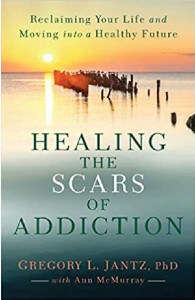
Get the book Healing the Scars of Addiction with your donation of any amount!
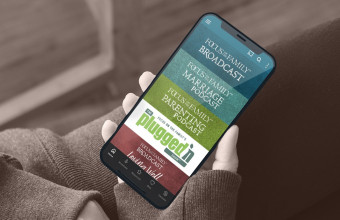
Listen to the Focus on the Family Broadcast, discover more podcasts, and find help for your family at your fingertips.

Visit our online store and purchase a CD of today's program for yourself or to share with a friend.

Focus on the Family's staff of licensed, professional counselors can help you bring healing and restoration to your family with Christian perspectives you can trust.

Read about the dangers of drugs and alcohol, what the Bible has to say about getting high, how a teen can help a friend involved in substance abuse and resources for drug abuse.

Consider parenting your teens in a way that will keep their online lives healthy, too.
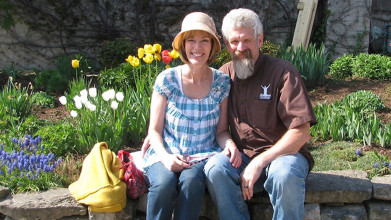
One couple tells about the heartache of placing a child up for an adoption, drug addiction and co-dependency. Find out how God mercifully redeemed their marriage and family by rewriting their story.

My story followed the typical progression of addiction to pornography: early exposure, addiction, escalation, desensitization and acting out sexually. Then one person’s response to my story changed my life.

My husband’s problem with porn is destroying him, me, our marriage, and our family. Friends who care about both of us tell me to use tough love with him. But then I read articles that say it’s the wrong approach — that compassion and patience would be better. What should I do?

Help! My husband is addicted to video games, playing for hours on end while neglecting our family.

How do I know if I'm "enabling" my spouse's compulsive gambling problem? I don't want to do anything that might encourage his behavior. And while I'm on the subject, what exactly does it mean to be an "enabler"?
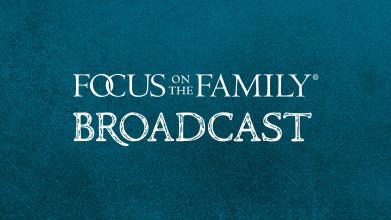
Author and speaker Jonathan Daugherty discusses his former sex addiction and his path to recovery, offering encouragement and hope to men struggling with similar issues.
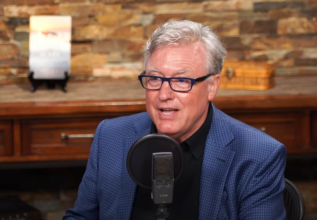
Dr. Gregory Jantz describes the process of healing from addiction, and the patience required.

In this Adventures in Odyssey drama, a carelessly uttered word from Eugene creates havoc as it becomes the fashionable insult, resulting in a lesson about the power of words.

This discussion offers a preview of Volume #16 “Cultures in Conflict” from the That The World May Know video series, available below.

Debra Fileta will help couples better understand the four seasons of healthy relationships, what to expect during each one, and how to carefully navigate them for a stronger marriage. (Part 1 of 2)

Larnelle Harris shares stories about how God redeemed the dysfunctional past of his parents, the many African-American teachers who sacrificed their time and energy to give young men like himself a better future, and how his faithfulness to godly principles gave him greater opportunities and career success than anything else.

Amy Carroll shares how her perfectionism led to her being discontent in her marriage for over a decade, how she learned to find value in who Christ is, not in what she does, and practical ways everyone can accept the messiness of marriage and of life.

Jonathan McKee offers parents practical advice and encouragement in a discussion based on his book If I Had a Parenting Do Over: 7 Vital Changes I’d Make.